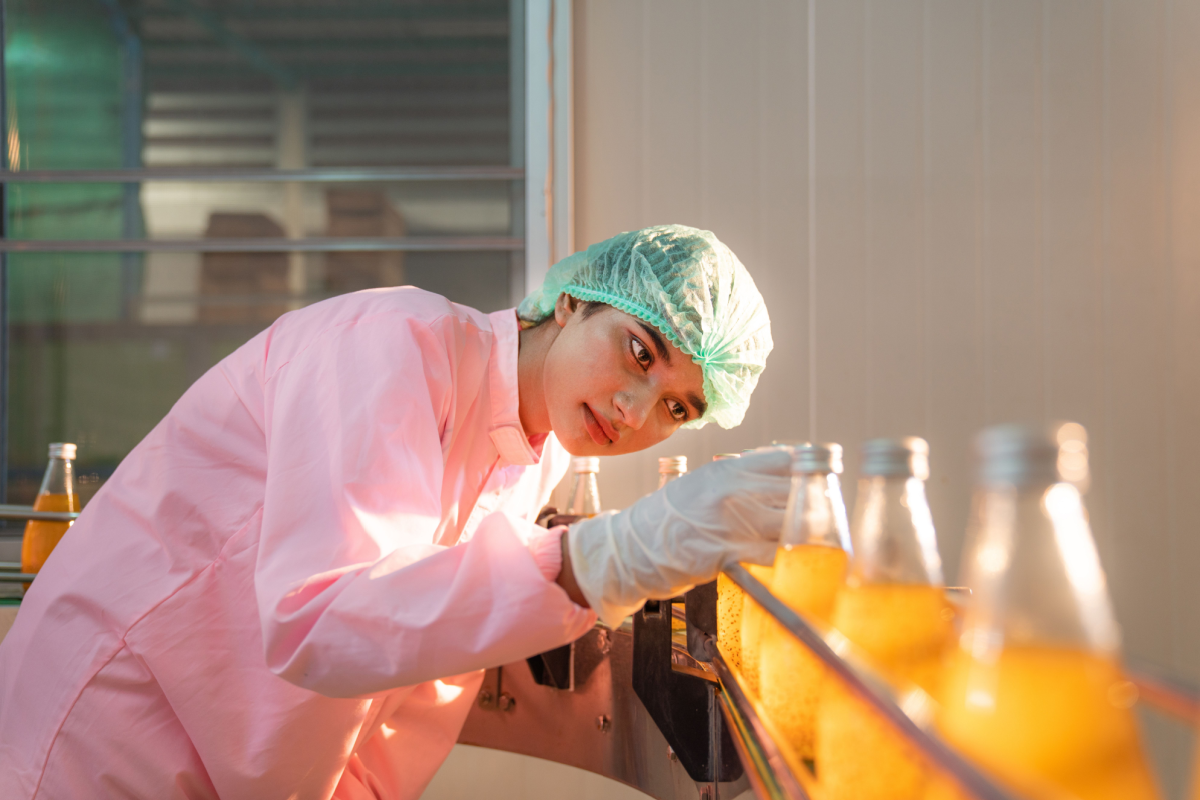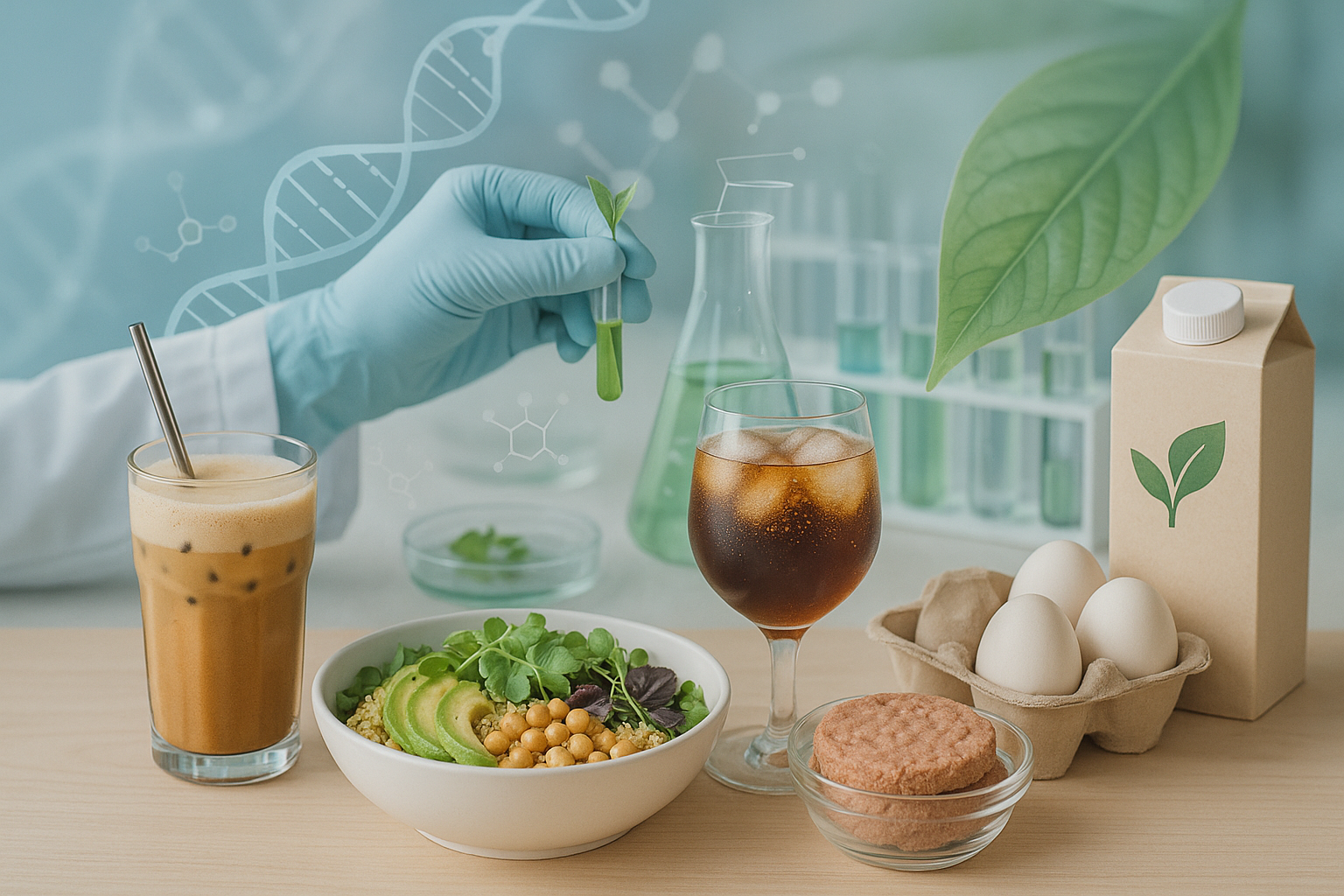In recent years, numerous studies have found that maintaining a healthy balance of intestinal bacteria is key to an overall healthy microflora. From digestion and immunity, to disorders such as inflammatory bowel disease and other autoimmune conditions, the health impact of these beneficial microorganisms that colonize our gut is significant, making it important to maintain a healthy overall balance. That’s where probiotics, known in Europe as live cultures, come in.
Both the increase in education on probiotics and consumer demand for them are growing. Because of this, consumers are increasingly looking towards functional foods and beverages which contain probiotic strains to satisfy their daily requirements.
To better understand how probiotics can be added to food products, and the benefits of probiotic fortification for both food manufacturers and consumers, I spoke with Michael Bush, president of the probiotic research and product development company, Ganeden. With over 20 years of experience in business and a degree in biomedical technology, Bush knows how formulating with functional ingredients like probiotics can help food and beverage companies add value to their products and increase sales.
For more on the value of adding live cultures to food and beverages in the European market, register for Ganeden’s recorded webinar on, “The Growing Formulation Trend: Probiotics.”
When most people think of probiotics, they associate them with yogurt. Are dairy products the only foods that can be fortified with probiotics?
No. With our strain, GanedenBC30, we specialize in fortifying foods and beverages outside of the yogurt and supplement section of the store. Our strain has the ability to go into basically any refrigerated products – including yogurts – but also shelf-stable products like granola, protein powders, bars, fruit snacks and everything in between.
It’s also important to note that not all yogurts are probiotic—in order to be considered “probiotic”, they must be fortified with a strain that’s been shown to have health benefits on the end user at the time of consumption.
What’s the benefit of consuming probiotics in foods and beverages, as opposed to taking a daily supplement?
The daily consumption of supplements is relatively low and probiotics need to be consumed every single day. Obviously, people need food on a daily basis to survive, so why not add their daily dose of probiotics to that food? With GanedenBC30 the efficacy is the same regardless of the format. In addition, a few years ago we conducted a large consumer survey and found that 70 percent of consumers said that they would rather consume foods and beverages fortified with probiotics than take a supplement on a daily basis, showing a demand for these products.
Can you talk a little bit about your strain, GanedenBC30, and how it differs from other probiotics?
GanedenBC30 differs from other probiotics in that it is a spore-forming organism, making it exceptionally stable and allowing it to survive manufacturing processes that other strains can’t—meaning it can be fortified in a variety of products, such as granola, chocolate, fruit chews and even kombucha. It can survive through high pressure pasteurization (HPP) and can make it through high temperature/short time pasteurization (HTST).
Another thing that sets us apart is our science—we have 24 peer-reviewed published clinical studies that have shown not only the safety of the organism, but also its efficacy. We have three primary endpoints that we look at during these trials, and those are digestive support, immune support and now protein utilization.
However, the real benefit of GanedenBC30 comes from the fact that it’s extremely viable, survives gastric acidity, survives manufacturing and is still there when the consumer wants to consume the food or beverage product.
What are some other questions that will be answered in the upcoming webinar?
- Does formulating products with GanedenBC30 present any additional food safety risks to manufacturers? Are there any additional cleaning requirements for manufacturing equipment that might have come into contact with this live organism?
- Can probiotics be added to existing products without changing the taste and texture that consumers are used to?
- Where should companies start when thinking about adding probiotics to their product formulations?
- What health claims can food companies legally make about their probiotic fortified products?
- Is GanedenBC30 approved by the European Food Safety Authority (EFSA)?
- Is there a different term that European food companies are able to use?
- What do you think is the reasoning behind that restriction on the use of the word “probiotic” in Europe?
What can those in the food industry expect to learn from your upcoming webinar?
They’ll learn about consumer sentiment as it relates to the probiotic industry in general, with some breakdowns on general demographics and consumer intent to purchase. They’ll also learn about GanedenBC30 and about Ganeden as an industry leader in probiotics. Registrants will get a good overview of what the market for live cultures looks like in Europe, who we are as a company and how we can help them get a product fortified with a strain and market it quickly.
Still have questions about adding live cultures to your food and drink products? Register now for Ganeden’s probiotic webinar.








Join or login to leave a comment
JOIN LOGIN